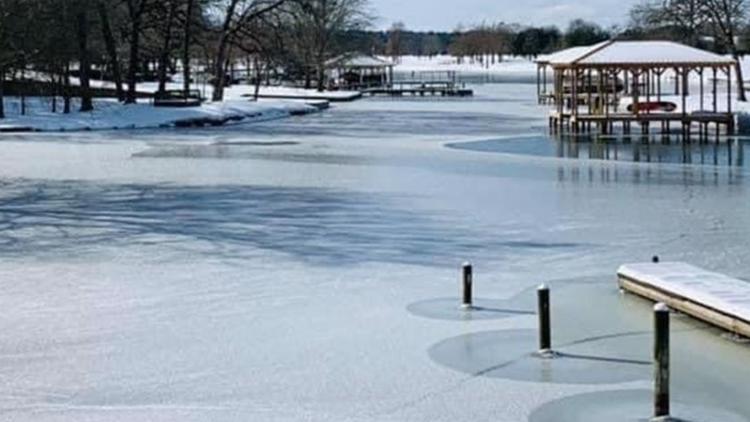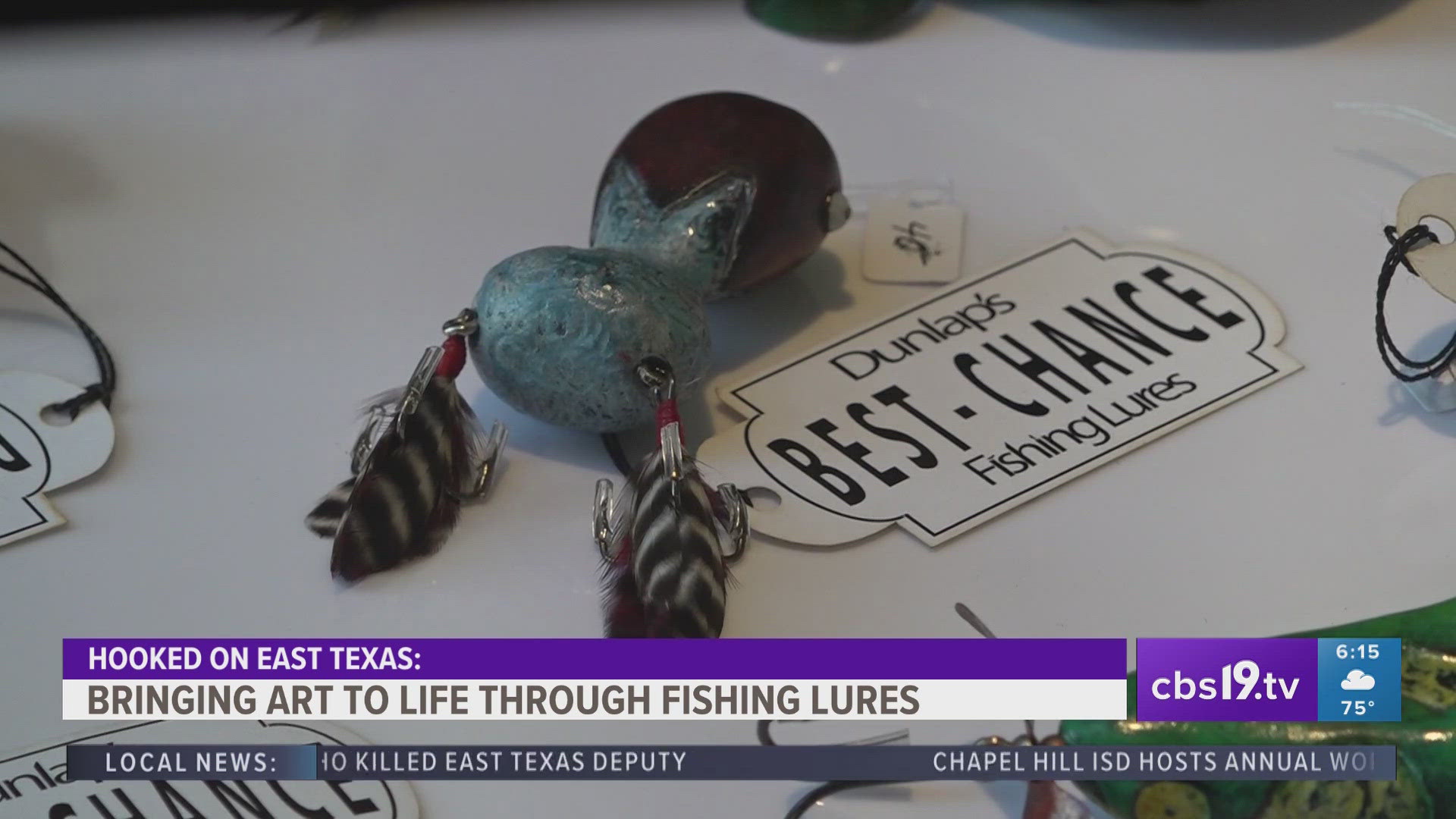TYLER, Texas — Do you remember where you were a year ago? If you were in East Texas, you'll never forget the Feb. 2021 winter storm. Neither will the thousands of fisherman, hundreds of guides and scores of biologists that tracked the impacts of the historic winter storm on Texas lakes and rivers.
We start our look back with a visit to Texas Freshwaters Fisheries Center. That's where we talked to hatchery manager Tony Owens, who will never forget last year's extreme cold.
"I’ve been around a long time and I’ve never seen weather like that here in Texas," said Owens.
Last year's winter storm dumped record snow and ice on East Texas and sent temperatures below for freezing for more than 100 hours. Owens remembers keeping a nervous eye on the pipes, the tanks and especially the outdoor ponds at the hatchery.
"We were even worried about our fish on the hatchery because our ponds are only so deep," said Owens. "We had ice all the way across the pond, we thought we lose a lot of our brooders, but we didn’t lose any."
Not far from the hatchery, on nearby Lake Athens fishing guide Kyle Miers says he wasn’t so lucky last winter. He’s enjoying this warmer winter but remembers what last year’s winter storm cost him.
“It cost me a lower unit on my boat," Miers said. "I was dumb enough to fish during the winter storm because it was snowing and sleeting and here we are 18 degrees and I’m the only dummy on the lake driving around and the next thing you know my motor blows up, so it cost me a motor."
A short trip south to Lake Palestine is where we went crappie fishing with guide Mark Standridge. We soaked up this winter’s warm sunshine. But Standridge remembers what he did last year in February when the arctic air hit.
“When that hit I stayed in the house and it did take a while, maybe two weeks to recover from that cold," Standridge said.
It didn't take long for the temperatures to recover from the cold. Less than a week after temperatures finally rose above freezing, high temperatures were in the low 80s. That led to a rapid snowmelt which resulted in a domino effect that paid big dividends for anglers last spring.
Guides and fisherman noticed the fish they were catching seemed bigger, maybe bigger than ever. Guides and biologists say the freeze killed schools of shad, small lake fish that are natural bait for larger crappie and bass.
“It was because of the freeze, you know all those fish got in one spot together, it’s kinda like if it was cold outside and we didn’t have any clothes on, we’d all get huddled up," Miers said.
That turned into a feeding frenzy for cappie and bass, especially bass that weigh more than 13 pounds, otherwise known in Texas as Sharelunkers.
Sharelunkers are big female bass who are caught and used to breed genetically bigger bass for Texas lakes. More Sharelunkers were caught last spring in Texas lakes than in any other year.
ShareLunker program coordinator Kyle Brookshear says the majority of Sharelunkers are close to 10-years-old and cautions giving credit solely to the winter freeze for the record Sharelunker season, but he says the extreme cold may have played a role.
"Those fish don’t go from nine pounds to 13 pounds overnight but last year, I think, there’s some indication that the weather pattern may have triggered a heavier feeding frenzy by the large mouth," Bookshear said.
Back on shore at Lake Palestine Marina, 3 Nails Fishing Guide Standridge points out, the fish are bigger but they’re also harder to catch.
“The fish are there, the lake is healthy, there’s a lot of fish," Standridge said. "I’m not seeing no difference in the fish. They just got all they want to eat and it makes it hard. So if you’ve been out here fishing and ain’t done no good don’t beat yourself up, everybody’s had to work for them."
Fishing guides and biologist tell us the absence of extreme cold this winter will likely lead to a normal if not earlier spawning season for largemouth bass and crappie. That's good news for anglers who are looking for some new memories as they never forget last year's historic cold.



